
Good and Decent People
02-23-2020Pastoral ReflectionsRev. Brian F. ManningMany years ago when I was assigned as a parochial vicar (an assistant priest) at the Immaculate Conception Parish, East Weymouth, in the second year of our Confirmation Program one of the classes showed a film called "God in the Dock." It was a contemporary interpretation of a Christian on trial and how to prove the accused had any faith. It was the question: was there "enough evidence" to convict the man in the story for being a Christian. Certainly the idea of "is there sufficient proof in one's life of being a follower of Jesus Christ?" is a healthy and valid question. Have you ever asked yourself this question of "proof"? Often we think there is obvious proof of who we are, but the reality is that no one else thinks so because they cannot perceive it. We tend to think too much or too little of ourselves.
READ MORE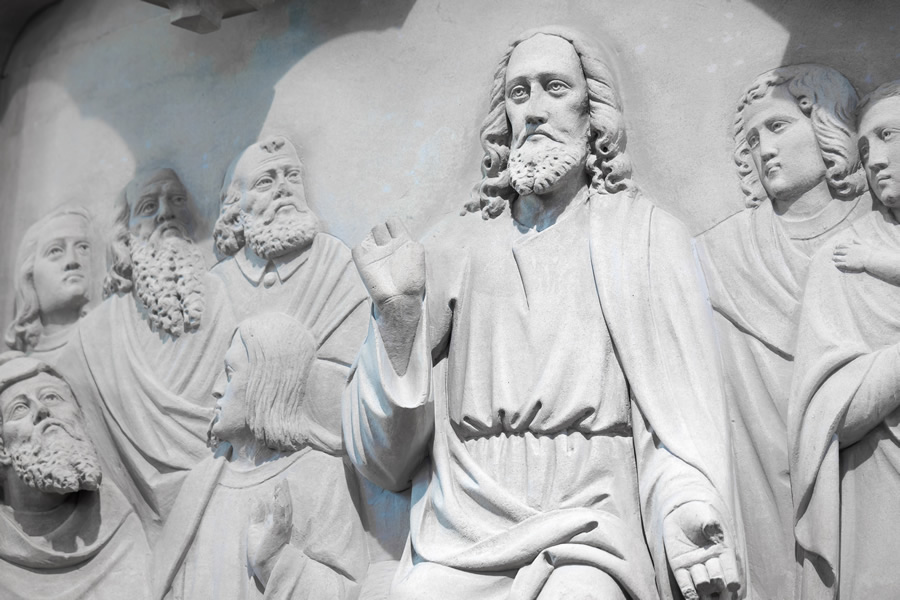
Sermon on the Mount Part II
02-16-2020Pastoral ReflectionsRev. Brian F. ManningOne of the two biggest topics that is often discussed is the amount of traffic we now have and how few parking places there are. Indeed rush hour and congestion now seems to run all day, from very early morning until very late evening. Parking spaces in the City of Boston can cost between forty and sixty dollars, with monthly rates not too much less. We know here in Franklin how difficult it is to park at many of the houses of worship, including our own. The rules for parking that apply to hydrants, corners, driveways, and access ramps are not always strictly followed. Our Town graciously relaxes the parking rules somewhat for all of our churches on Sundays, but the safety laws still apply. Some folks do not want to know how to use the common sense values of safety and courtesy. It is so normal today for people to think that they are special and that rules and laws do not apply to them, only to other people. Our scripture this weekend invites us to ponder about the spirit and letter of the law and also our freedom to choose.
READ MORE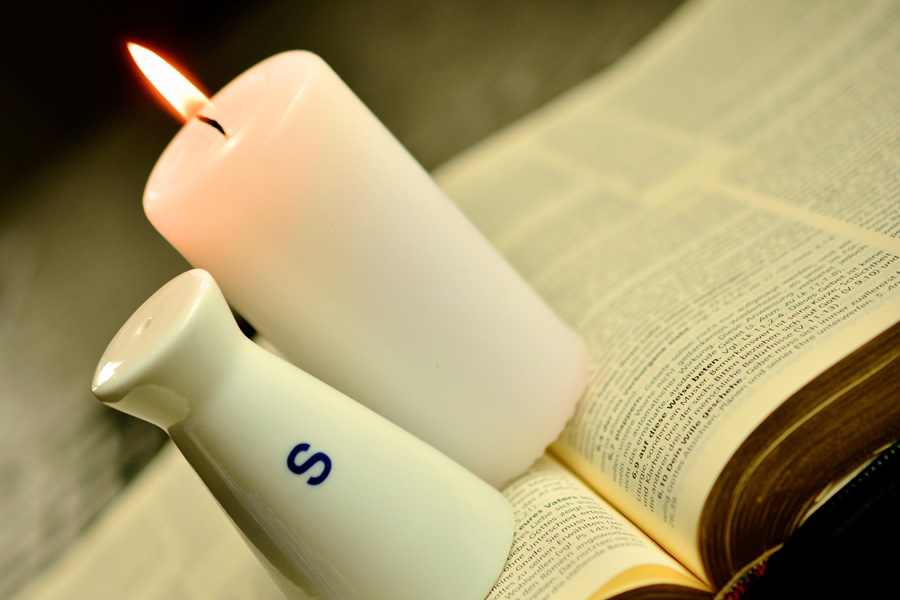
Be Salt and Light
02-09-2020Pastoral ReflectionsRev. Brian F. ManningWe may not realize that the gospel passage of this weekend is a continuation of the great Sermon on the Mount. We are moving beyond the Beatitudes to many of the additional words and messages of Jesus. The images and symbols of salt and light are the two major images we are invited to identity with this weekend in the scripture readings. We are asked to ponder their meanings in our lives and how we further the work of Jesus as we live out being salt and light. Common to every culture is the use of salt and obviously we all need light, whether from the sun or artificial illumination, to live each day.
Salt and light are indeed very basic to human existence. In human history there even have been "salt wars." Light has always been needed and treasured. We need light in darkness and in our world we need light to be able to see and read. When we do not have salt or light, we can feel how much we need them. Without light, human life is impossible. Without salt, the food that we eat is without taste and quite flat.
READ MORE
The Presentation of the Lord
02-02-2020Pastoral ReflectionsRev. Brian F. ManningThis weekend we celebrate another and a different style Feast of the Epiphany, the appearance of the Lord in the heart warming Feast of the Presentation of the Lord Jesus in the Temple. Again this revealing of the Lord is a sign of hope and light for all of us. In our Gospel, Mary shows what joy is after her struggle to keep hope and faith in God for so very long. For, previous to this event, she had various periods of fear and doubt and also anxiety and worry as we learn from the stories of the Annunciation, the Nativity and the Flight into Egypt which have been told to all of us. She proves to us by her life that if our lives are grounded in hope that God will act on our behalf, then there is nothing to fear and everything to celebrate. Life has meaning when we trust in the Lord despite the difficulties that surround us. Ultimately his grace will give us peace and joy.
READ MORE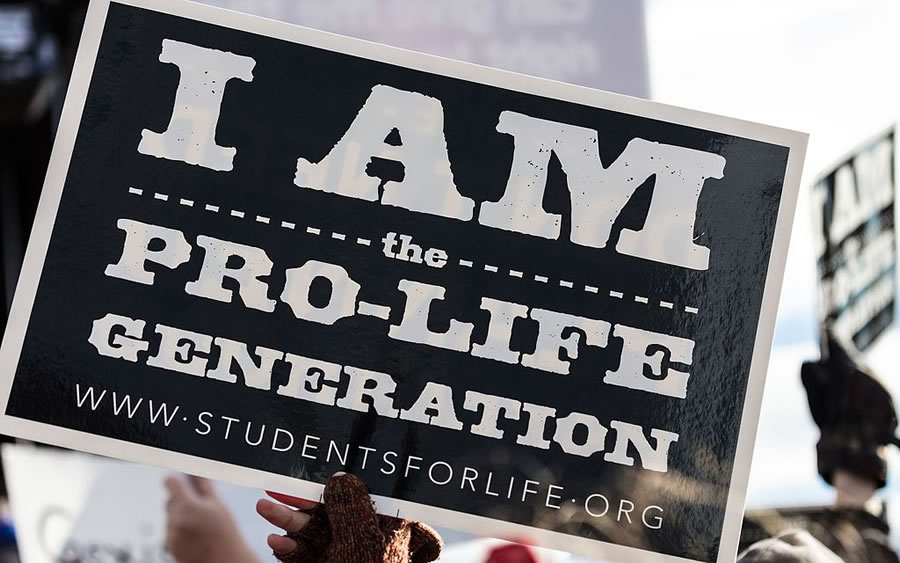
Every Life Is Precious
01-26-2020Pastoral ReflectionsRev. Brian F. ManningDear Parishioners,
At Mass this weekend, we are offering the special prayers which come from the Mass for Various Occasions: "For Giving Thanks to God for the Gift of Human Life" as directed by Cardinal Seán. On our parish website there will be the text of his special homily for this Mass for you to read if you did not hear or see it on all the various social platforms and media outlets. Although this effort is being expended at the time of the March for Life in Washington, we need to remember that the theme of the opening prayer of this Mass reminds us "that we, whom you have made stewards of creation, may remain faithful in this trust and constant in safeguarding the dignity of every human life."
READ MORE
Life Is More with God
01-19-2020Pastoral ReflectionsRev. Brian F. ManningWe may not realize it, but there is often a lot of formal ritual in our lives. We celebrate the dedication of a new building with a formal event. When someone new moves to our neighborhood, we often bring over a dinner to say welcome. When we visit a newborn at home, we bring a special gift to note the new beginning of life. We all know that a new beginning means a lot; it is for most of us a wonderful sign of hope. Indeed we have heard the saying that “hope springs eternal” and we believe this to be true. Oftentimes the past is clouded and difficult, but we still believe that the future is full of hope and light. In our scripture today, that beautiful newborn baby of Bethlehem is now shown to us as God’s most Chosen: God’s Son.
Our reading from the book of Isaiah was actually written by a second writer who was then named Isaiah. He spoke when the Jews had returned from Babylon and the people were in disarray. They had a lot to do; they had to feed themselves, provide shelter, and also start to rebuild a temple for worship. Their future was unsecured and they were afraid and depressed. They were at an end and also at a new beginning. They were seeking to rebuild Israel, but Isaiah told them the Lord God had a greater plan for them. Indeed Israel as a country and people was to be much more than a rebuilt nation: it was to be a light for the entire world. Isaiah tells the people that through this new Israel, God’s salvation would reach to the ends of the earth. This message became the vision of the people, and it was certainly a bigger vision than they had made for themselves.
READ MORE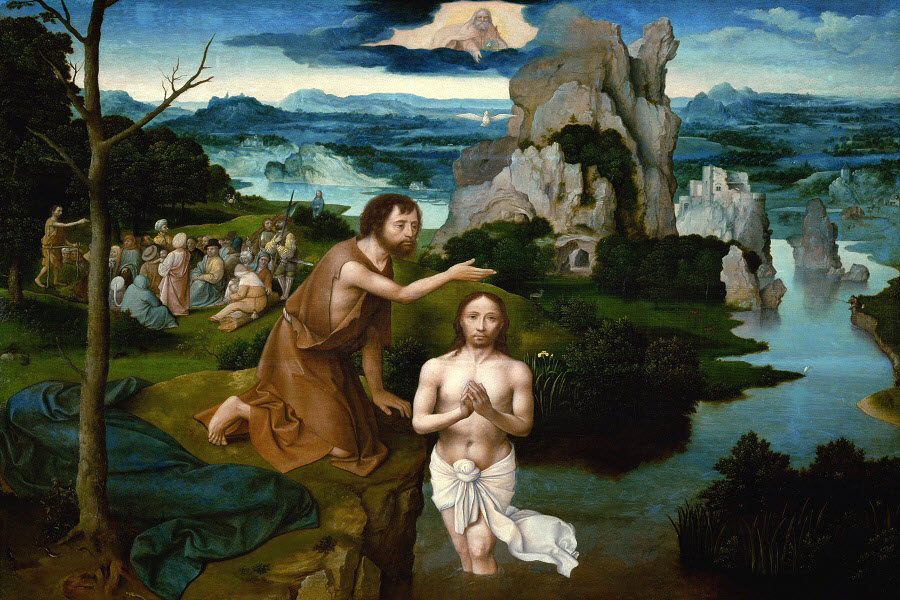
His Wondrous Compassion
01-12-2020Pastoral ReflectionsRev. Brian F. ManningIn this week’s gospel passage it is quite important to grasp the drama of this scene of the Baptism of the Lord Jesus. We have listened to and enjoyed the wonderful stories of the travel of Mary and Joseph to Bethlehem, the actual Birth of Jesus in the stable, the arrival of shepherds, and then finally the arrival of mysterious kings, the Magi, from the East. Our hearts have been warmed by the beauty of this magnificent story of the Lord’s Birth. And now we hear the story of the adult Jesus and the beginnings of his public ministry of preaching and healing and calling all to the Kingdom of God. The “quiet” of the Christmas story and the young life of Jesus have now ended; the second “epiphany” of Jesus now takes place as he walks with dignity and strength to the banks of the Jordan River. The same as Christmas night, the heavens open and a servant and beloved Son is again given to us.
When Isaiah prophesized, this beloved servant was without a name. Bear in mind, though, that the chosen and beloved one had a mission to act on our behalf, freeing us from blindness and all the various prisons we build for ourselves. This beloved servant will destroy the darkness we create. His compassion will be beyond limitless. That is what the great prophet Isaiah tells us. His graced prophecy directs us to the banks of the Jordan River where we identify the beloved servant at the beginning of his mission.
READ MORE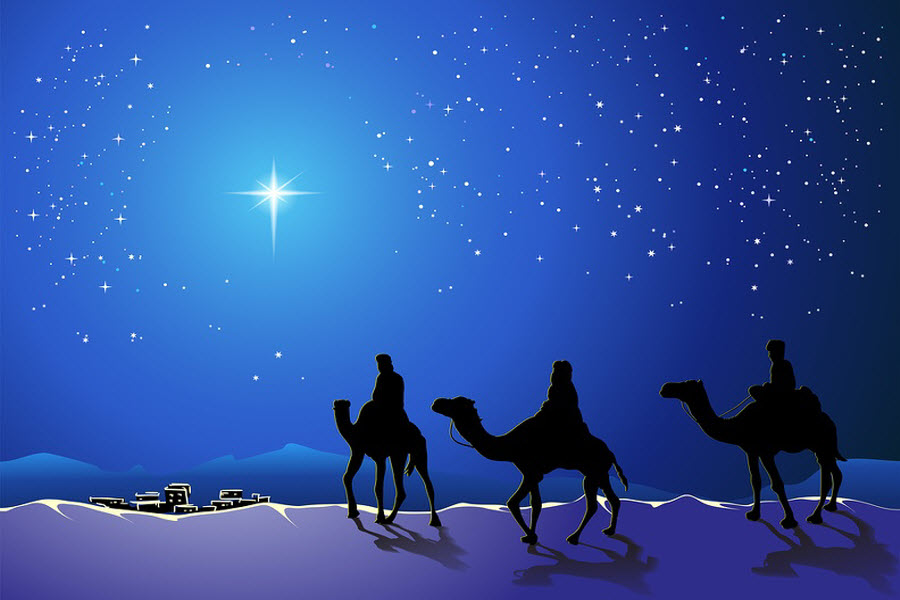
Searchers and Pilgrims
01-05-2020Pastoral ReflectionsRev. Brian F. ManningOn this great feast day and Sunday we gather to celebrate the true love and mercy of our God. We have just celebrated a season and time of gift giving to family and friends. Today in contrast we are given a great gift from our God. This Feast of Little Christmas, often called the Epiphany, or the Feast of the Three Kings, is a time when we are gifted. Much like the three kings we must be open to going and getting the gift, even if it causes inconvenience or effort and work.
Indeed does not Isaiah tell us how great is the gift in the symbolism of Jerusalem and the return of the Jews from Exile in Babylon. Jerusalem is luminescent with great and splendid light. Jerusalem is irresistibly drawing the people home even if they are very far off in a distant land. Everyone wants to come, from mothers to king; it does not matter your station or health.
The distant places which Isaiah names in our first passage are the various places to which Ismael’s and Esau’s progeny had migrated long ago. These fancy names create a mysterious and exotic environment for us today as these very rich and royal people came with gifts of gold and frankincense.
READ MORE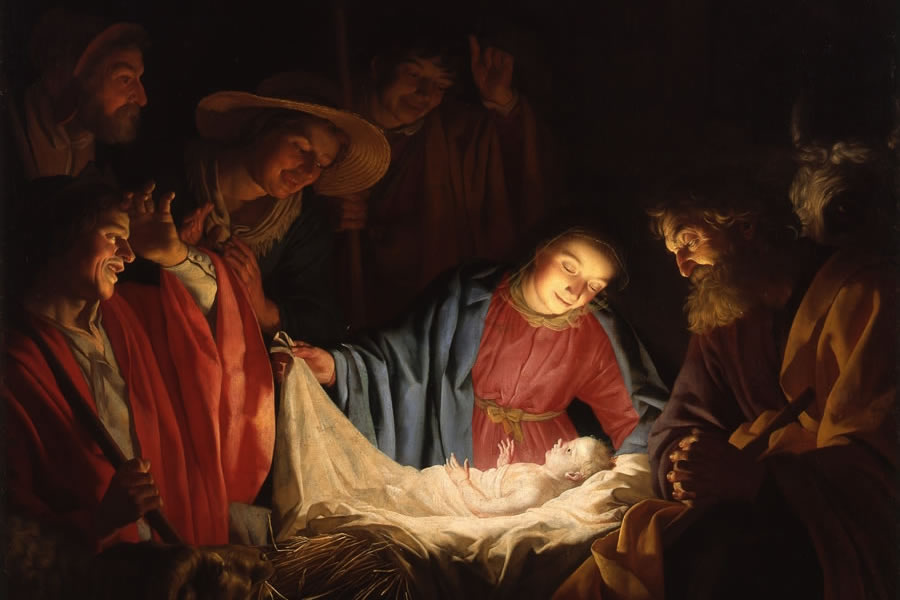
Perfectly Imperfect Family Life
12-29-2019Pastoral ReflectionsRev. Brian F. ManningThe word and concept of family is used so very often in speeches. We talk of religious families, the family of nations, the Christian family, and also the parish family. We launch this word and concept as pertaining to the ideal, whereas we know in life that no family is ideally formed or lived. Just think of the Holy Family of Joseph, Mary, and Jesus. Mary is pregnant before marriage and the father is not Joseph. We realize that this is part of the sacred mystery of the Incarnation which brings about our salvation, but it is not the “ideal” family that people talk so much about. Family is about a loving bond and commitment to nurture and care for its members. When we remember the meaning and values needed in a family, we can let go of some of the outrageous, silly and rigid demands and interpretations which people have. Our readings this weekend invite us into God’s Revealed Word to remember what matters.
Our first reading is from the Book of Sirach which encourages being respectful to parents. Our author is offering the wisdom thoughts of a grandfather to his grandson. Although manners are included in the Book, Sirach is really about passing on to the future generation values which manifest concern, self-giving, sincerity, responsibility, and generosity. These are habits or virtues of being a good person; these virtues keep anyone from being a social phony or deceptive person. Sirach reminds everyone that these virtues need to be in practice each and every day.
READ MORE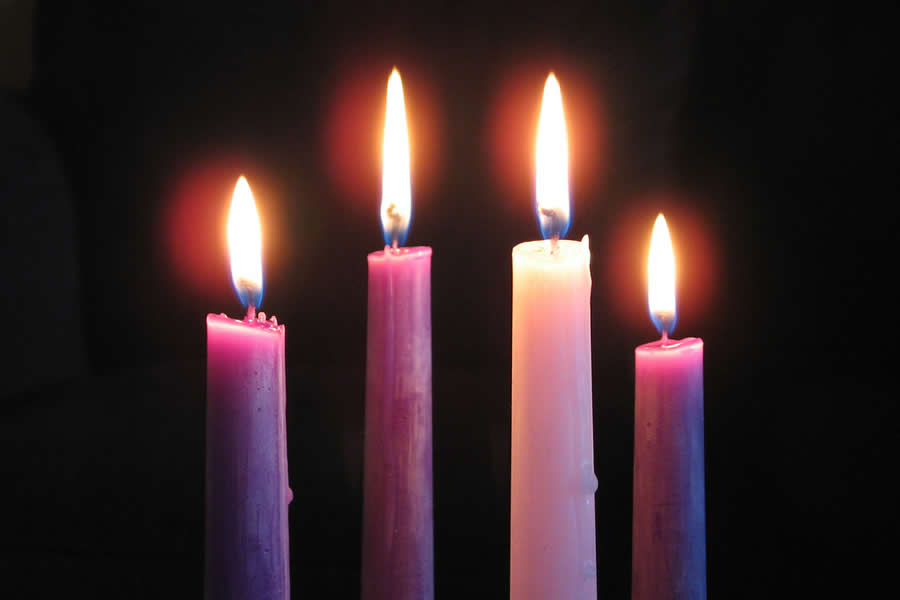
With Grace and Faith
12-22-2019Pastoral ReflectionsRev. Brian F. ManningChristmas is shortly upon us. In light of the Gospel reading, perhaps we can use the quiet Saint Joseph as a model for us in these last few days. He was open to God’s will no matter what, and he steadily tried to live the Word of God in his life in the good times, and the bad times, and most especially in the confusing times.
Note how our Old Testament reading is deliberately selected because of its direct connection to the Gospel. The words of the prophet Isaiah used most frequently in the readings during Advent are linked to Matthew’s story of the vision of Joseph, which is brief and quiet in contrast to the drama and noise we read about in Isaiah. King Ahaz was distraught that the massive Assyrian army was lining up on the border land of Judah. Ahaz was desperate for help and grasped at anything and anyone to aid him to win. Ahaz even asked the prophet Isaiah for advice and help. Isaiah told the king that his role as Judah’s king was not to find strength in arms or in worldly alliances, but in the ancient and religious covenant with God. Ahaz was a descendant of the great king David and needed to remember his inheritance. Yet, Ahaz did not want to follow through as he should. He wanted to be mad and blame others. Isaiah reminds him of the sign and promise we hear in today’s Gospel: “the virgin shall conceive and bear a son, and they shall name him Emmanuel.”
READ MORE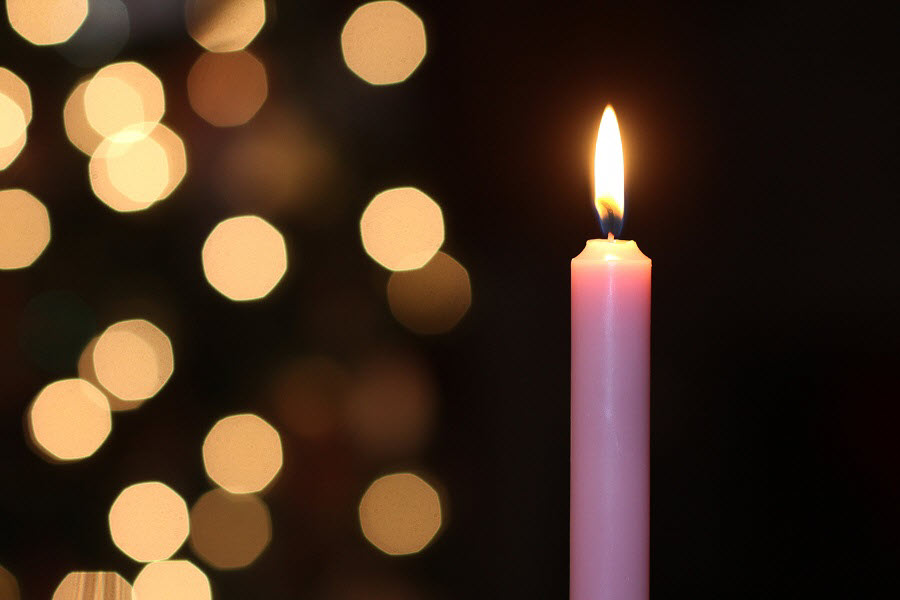
Waiting in Hope
12-15-2019Pastoral ReflectionsRev. Brian F. ManningLessons and Carols: You and your family and also friends are invited to attend the special Service prepared by our dedicated Choir and Director called “Lessons and Carols.” It is this afternoon, Sunday, December 15 at 3 PM in the main Church. Pause a brief while and come and be uplifted and prepared for the coming days before Christmas. People often say they are too busy with too much at Christmas, so take a break for less than one hour and come and hear the beautiful music of Christmas as prepared by our great Choir and talented Music Director Terry Kerr. It consists of scripture passages and also spiritual and powerful Christmas music. Pastoral
READ MORE
God's Answer for Our Hearts
12-08-2019Pastoral ReflectionsRev. Brian F. ManningTo some practical extent, the future is now. We need to realize that our present actions and attitudes create our future. We cannot know the future as such, but we need to think about it. Life will happen whether we think about it or not, but knowing what matters for the future is most important. Our central character this weekend in the Gospel is John the Baptist who is most willing to shine a light on the future. He announces a message of repentance to prepare for the future. Indeed people come in hordes to hear him and respond. They step forward and receive a baptism of repentance. Note, however, in this Gospel passage that John’s blunt judgment of the Pharisees and Sadducees who are in this mass of humanity brings us up a little short. Matthew, the Gospel writer, was always hard on the religious leaders of Israel. His Gospel holds them responsible for failing to recognize Jesus as the Messiah. He evens holds them to a greater charge of failing to prepare the people for the coming of the Messiah. Thus for this great reason he has John sharply criticize them to one and all. John taunts them by saying they can take no pride in their heritage as sons of Abraham.
READ MORE
Find God in this Moment
12-01-2019Pastoral ReflectionsRev. Brian F. ManningSituational awareness and mindfulness are two concepts that are often talked about today, and people encourage us to practice these mind issues in our daily lives. I also like the saying about wherever we find ourselves, there we are. In this coming month we are rolling up to Christmas. Most of us are busy thinking a lot about this event, which is four weeks from now. We do not really think about now, today, this moment. This First Sunday of Advent, the scripture asks us to be where we are in this moment, this day as we light a single bright candle in the Advent wreath to break up the darkness. We are really being asked to consider God’s salvation, which dawns on us right here where we are.
The prophet Isaiah offers us in the first reading, in very poetic and elegant words, the first image of a messianic time. Know also that vision is echoed in the angelic greetings of the Incarnation: “Peace on earth to those on whom God’s favor rests.” Isaiah’s vision has all nations streaming up the high mountain with all the people coming with their work tools. His vision has the very tools of war transformed and thus there will be no more war. For the great the messianic time will be a time of peace and justice among all nations.
READ MORE